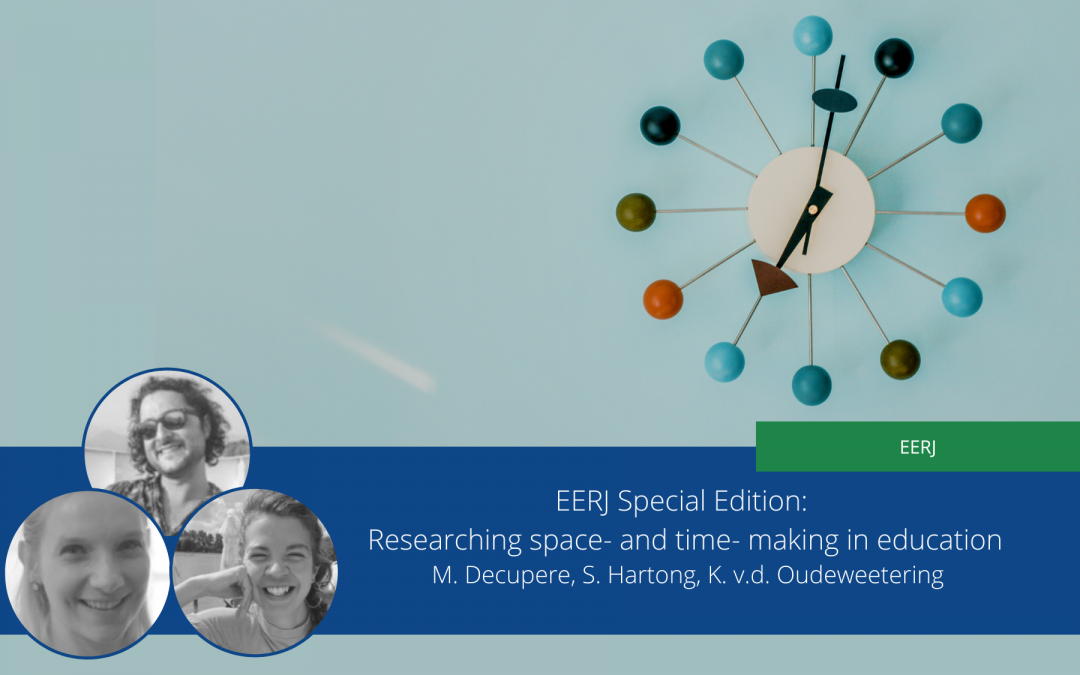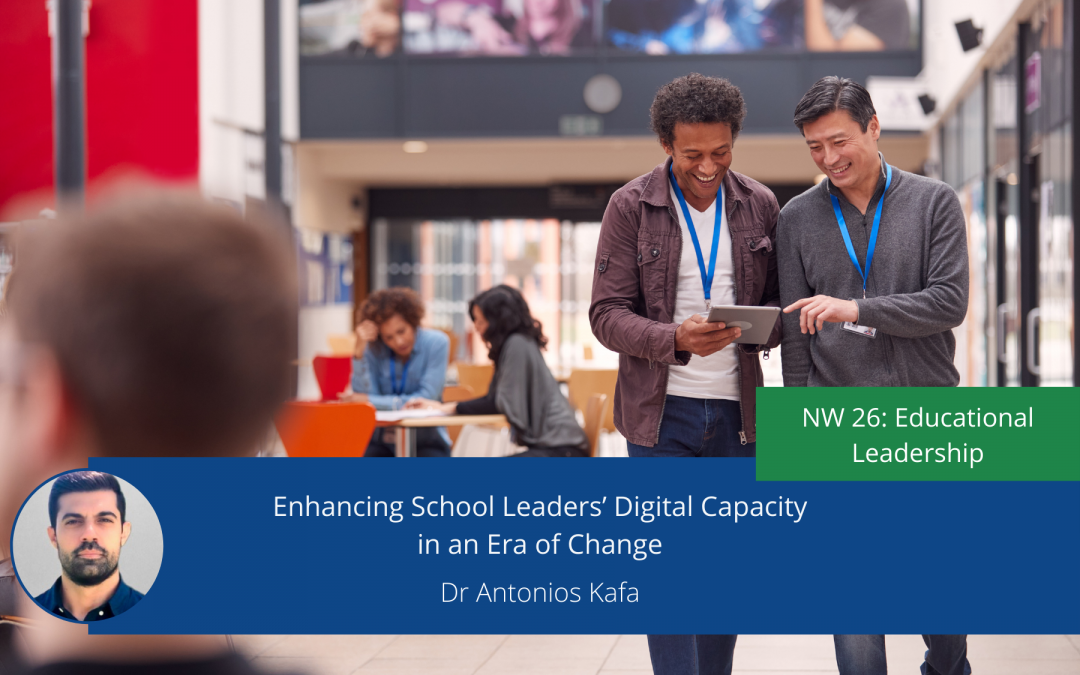
EERJ Special Issue: Researching space and time making in Education
The European Educational Research Journal (EERJ) was created by EERA to further the aims of the association and its members, educational researchers across Europe. It is a scientific journal interested in the changing landscape of education research across Europe. It publishes double-blind peer-reviewed papers in special issues and as individual articles. As part of the ongoing cooperation with EERJ, the EERA blog will share updates and information about upcoming and published special issues and articles alongside blog posts from EERJ contributors.
Introduction―Space-and time-making in education: Towards a topological lens
First published online February 16, 2022
Mathias Decuypere
KU Leuven, Belgium
Sigrid Hartong
Helmut Schmidt University Hamburg, Germany
Karmijn van de Oudeweetering
KU Leuven, Belgium
Have you ever had the feeling that time is going faster than it used to? That this acceleration is doing something with our idea of what good education is, or should be? That the pandemic has done something to our understanding of what it means to teach and learn physically ‘here’, or digitally ‘there’? That it is hard to say where and when exactly the workday of an educator starts or ends?
Space and time are made
These questions show us that it is increasingly getting more difficult to talk about space and time as if they are naturally just ‘out there’, surrounding us and our social lives. Contrary to such an instrumental and ‘neutral’ understanding of space and time, nowadays, we equally often hear that space and time are (partly) human constructions, and that our understanding of them changes continuously. For instance, the emergence of online educational platforms and other digital tools allow people from all over the world and across different time zones to be simultaneously present in a class or lecture.
Like a magnifying glass, the ongoing Covid-19 pandemic has powerfully invigorated and accelerated processes of digitization, and even more clearly illuminated how much impact they have on the educational field. As living rooms have transformed into do-it-yourself classrooms, as computer screens have served as both blackboards and lecturing halls, and as after-school programs have spread over the day, the pandemic has concretely shown how space and time are not only abstract ‘givens’. Rather than that, they have turned the self-evident and previously somehow “tacit” character of space- and time-making in education, into a topic of crucial concern.
Social topology at work
In our Special Issue in the European Educational Research Journal, we discuss and elaborate on one approach that allows us to research such processes of space- and time-making: (social) topology. The usage of topology is not necessarily new in educational research, but it has hitherto merely been used in very complex, theoretical, and abstract manners. In this Special Issue, our aim is to bring together various empirical studies that work within the framework of social topology. In adopting a topological lens, all the studies contained in the Special Issue show topology ‘at work’: they make it very concrete how you can, by means of this framework, research different sorts of space(s) and time(s) in educational practices.
Making educational spaces and times
Topology thus focuses on space and time as relational constructions that are made by humans, and that at the same time have a very profound impact on humans. A very intuitive example of this is the switching of the clock when we enter and exit daylight saving time – we then all very clearly feel the impact of our (human) tinkering with time. In our Special Issue, we have collected various contributions that show the different sorts of spacetimes that exist in the field of education; most of the time even existing at once. Where, for instance, does a lecture take place when it is being distributed in a digital form as a lecture capture and when it is equally being discussed online on Twitter?
Similarly, when and where does something like a borderless ‘European education’ take place when it is happening online? Where does it begin and where does it end?
These are the kind of questions that are addressed in our Special Issue, and that show the importance of using a topological lens in order to do research that focuses on the making of educational spaces and times. Moreover, as the Special Issue shows, these newly emerging spaces and times, when they are introduced in our educational systems, are doing something with and to do those systems. For instance, they create new sorts of professions and new types of professionalities. Equally, they are rhetorically deployed in such a way that they install particular future visions and desires into students and teachers.
Conclusion
In summary, then, our Special Issue focuses on educational spaces and times as things that are continuously being made. Moreover, the articles in the collection do so by giving mutual attention to space(s) and time(s).
As such, the collection greatly advances our understanding of how the spatial and the temporal continuously interact with each other, and thus makes a clear case for the importance of analyzing both conjointly, without seeking to privilege one over the other.
You can access the EERJ Special Issue here (open access). If you are interested in submitting to the EERJ, you can find the Submission Guidelines here.

Prof. Mathias Decuypere
Associate Professor of Qualitative Research at KU Leuven, Belgium.
Mathias Decuypere is Associate Professor of Qualitative Research at KU Leuven, Belgium. https://www.researchgate.net/profile/Mathias-Decuypere

Professor Sigrid Hartong
W3-Professor of Sociology at Helmut Schmidt Universität Hamburg, Germany.
Sigrid Hartong is W3-Professor of Sociology at Helmut Schmidt Universität Hamburg, Germany. https://www.researchgate.net/profile/Sigrid-Hartong

Karmijn van de Oudeweetering
Doctoral candidate at KU Leuven, Belgium.
Karmijn van de Oudeweetering is a doctoral candidate at KU Leuven, Belgium. https://www.researchgate.net/profile/Karmijn-Van-De-Oudeweetering


